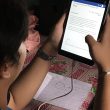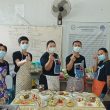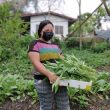USAID introduce work-based learning in Philippine tech-voc to support marginalized Filipino youth
In early 2020, Melbert Sesante, Jr. was a 20-year-old who was just beginning his sophomore year in a Cebu City college. With an outgoing personality, he was pursuing a career in hospitality. But when COVID-19 hit the Philippines, he chose to drop out. He didn’t think online classes were for him. Besides, his family couldn’t afford to buy distance learning equipment.
Out of school and not working, he instead took a short tech-voc course on computer servicing through the Technical Education and Skills Development Authority (TESDA) Online Program. “I learned about it through a friend from church. I very much wanted to expand my knowledge in that area so I immediately grabbed the opportunity,” he said.
My favorite lessons were hands-on. We went to actual workplaces and talked to managers.
Melbert Sesante, Jr. , with his Manager at Anjo World Theme Park in Cebu City Tweet
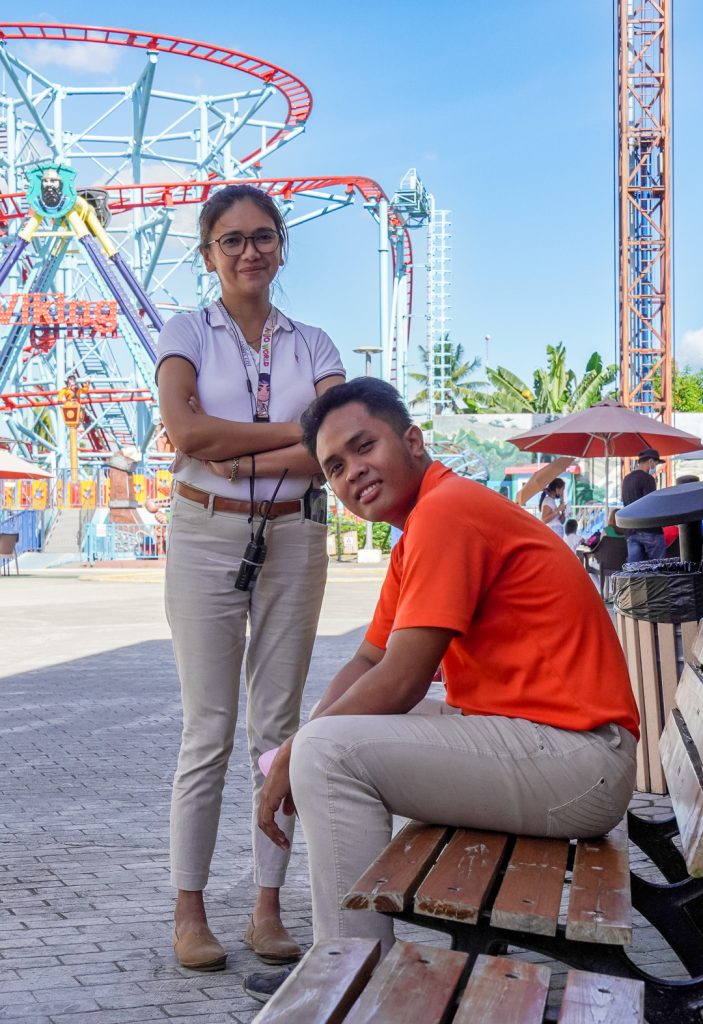
USAID supported TESDA expand its online program so that it was more accessible to out-of-school youth who lost access to training and education services due to pandemic restrictions. Through this collaboration, trainees were loaned tablets and print modules. Community-based facilitators were also engaged to guide young learners throughout the process.
In addition, through USAID, more work and business readiness content were introduced into the Philippine tech-voc curriculum. This included the adoption of the Work-Based Learning approach from the Education Development Center. So, in addition to technical skills, hands-on learning and work immersion in actual workplaces were facilitated for TESDA learners. TESDA-trained youth now also gained soft skills which are always highly sought-after by businesses looking to expand and grow.

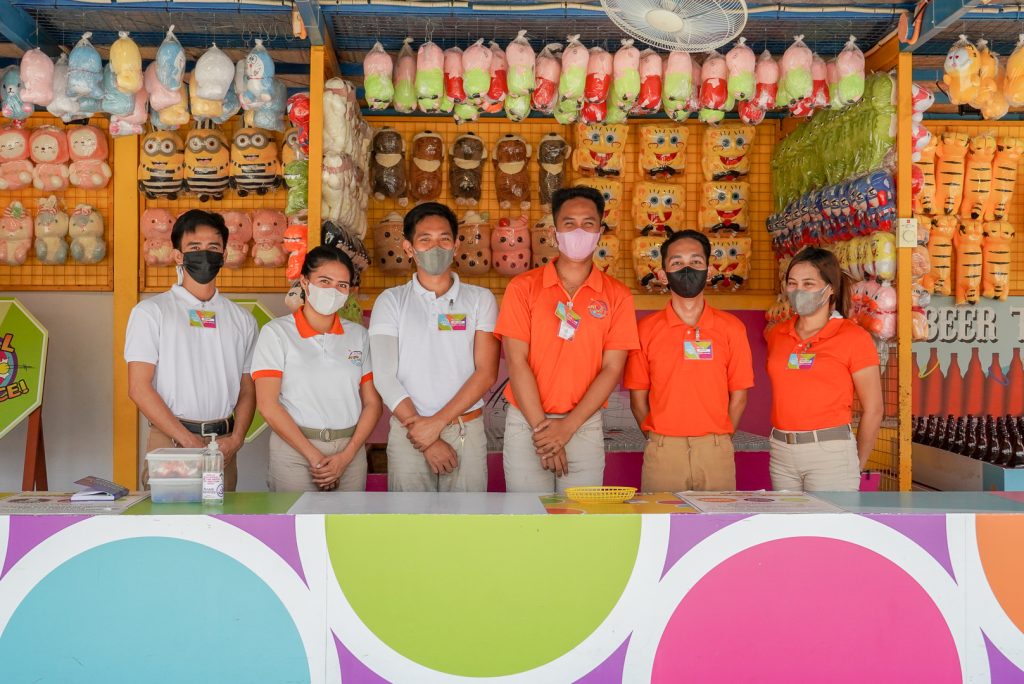
Akala ko lang madali pero hindi. (I thought it was going to be easy, but it wasn’t.) I encountered so many types of people as a game attendant. There were short-tempered people, some were rude, while some were slow. I really developed patience.” Because of his balanced training, he was prepared. “I was able to enhance my computer skills as well as my communication skills. I made friends and family of everyone here at Anjo,” Melbert said.
After a month, Melbert was officially hired by Anjo as a full-time game attendant. He’s in charge of the park’s opening and closing procedures, game equipment operations, area maintenance, and prize inventory.
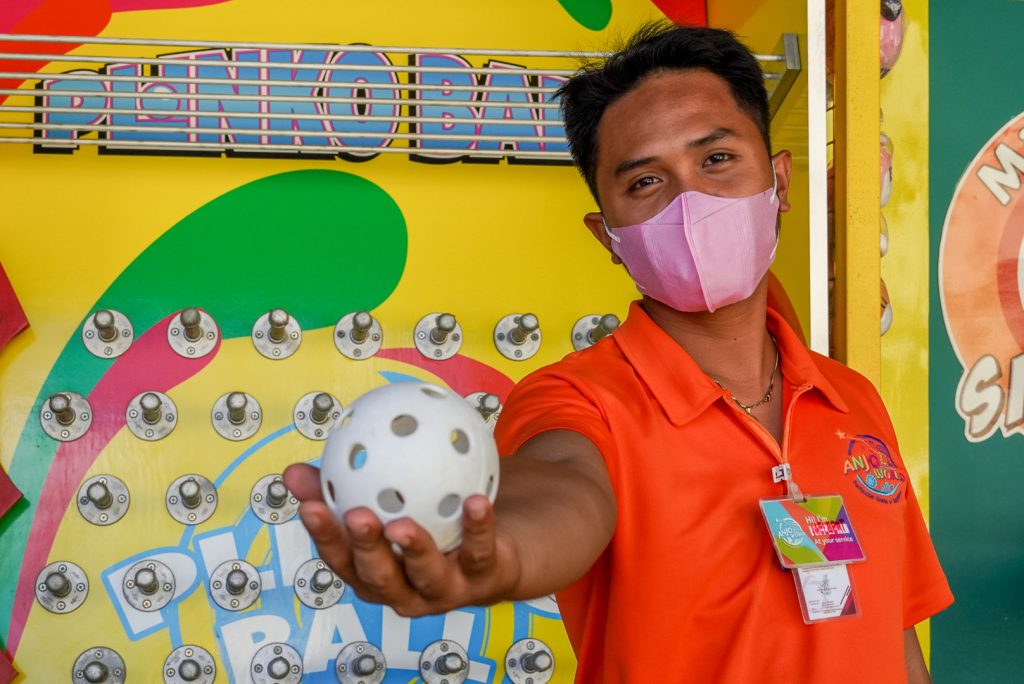
If it wasn’t for USAID Opportunity 2.0, I’d still be a tambay (an idler), stuck at home just laying around. But because of this support, I found a regular, permanent job. Thank you, USAID, for steering me to a good path.
Melbert Sesante, Jr. , 22 years old from Cebu City, former out-of-school youth Tweet
USAID’s collaboration with TESDA restored much needed access to learning opportunities for the marginalized youth in the Philippines. Additionally, the enhancements to the TESDA Online Program and the Philippine tech-voc curriculum have led to real, lasting, and positive impact to the lives of out-of-school Filipino youth. Having gained both technical and soft skills from USAID and TESDA support, more young people have better chances at achieving their education, employment, and entrepreneurship goals.
“I do want to go back to college, but that’s in the future, and I will work and save up for it,” with the right support, Melbert—whose gregarious spirit remains unwavering—is able to continue to pursuing his dreams.#
About this story
Through its Opportunity 2.0 project implemented by Education Development Center, USAID has been able to support local training institutions cater to thousands of out-of-school youth through grants, capacity building, and curriculum enhancement.
As youth gain easier access to opportunities for further education or training that lead them to better jobs and business start-ups. This program contributes to the U.S. Government’s initiative to promote accessible quality education and training for all as well as to expand inclusive and market-driven growth.


